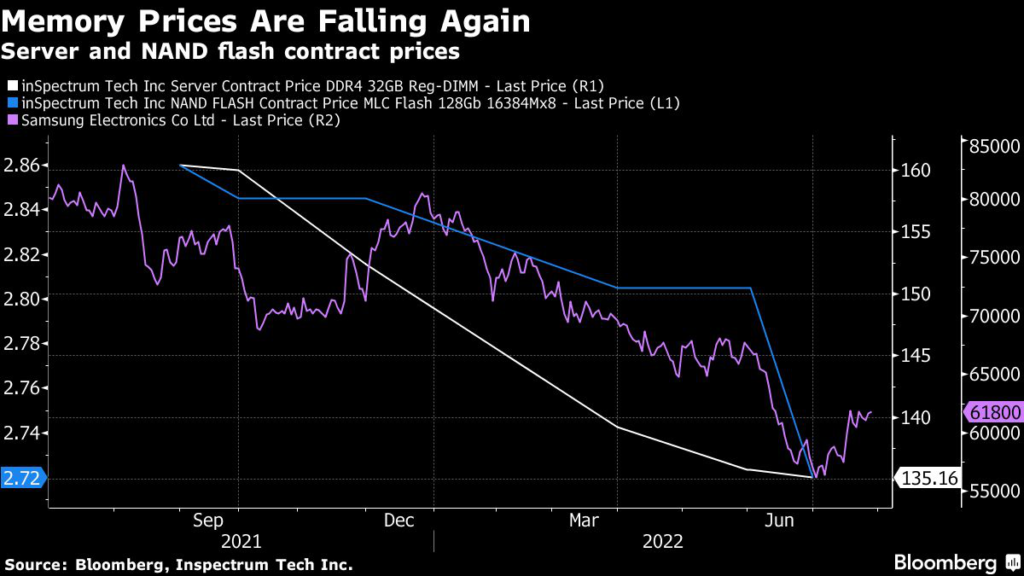(Bloomberg) — Samsung Electronics Co.’s quarterly profit missed estimates after cooling demand for consumer gadgets hit its chip division, spurring concerns about the outlook for Big Tech in 2022.
The world’s largest producer of smartphones and displays reported a less-than-expected 16% rise in net income, reflecting how it’s still navigating rising uncertainty around a potential global recession. Revenue from its semiconductor division, which as the world’s largest producer of memory is an indicator of electronics demand, missed analysts’ estimates by about 22%.
Apple Inc., Amazon.com Inc. and Microsoft Corp., which are all major buyers of chips, are reining in budgets for next year and, in turn, denting chipmakers’ capacity expansion plans, adding to tepid consumer demand. Samsung rival SK Hynix Inc. warned of waning memory growth and rising inventories, becoming the latest tech giant to sound the alarm over global economic uncertainty.
Click here for a live blog of Samsung’s post-earnings call.
What Bloomberg Intelligence Says
“DRAM contract prices started dropping slightly from April sequentially, stayed flat in May and ended June slightly lower. Monthly DRAM exports have been steady at about $3.5 billion from July 2021, suggesting the rate of growth may shrink further from July this year.”
– Masahiro Wakasugi, BI analyst
Click here for the full research.
Samsung’s shares stood largely unchanged in early trading in Seoul.
Korea’s largest company reported net income rose to 10.95 trillion won ($8.3 billion) in the three months ended June, missing projections for 11.2 trillion won. Sales from the chip division grew a smaller-than-predicted 24% to 28.5 trillion won, missing estimates for about 36.7 trillion won. The smartphone and networking division however grew 29% to 29.3 trillion won, slightly ahead of expectations.
In the longer run, chip sales are growing much more slowly than expected and will begin to decline in 2023, Gartner Inc. said in a report, marking an end to one of the sector’s biggest boom cycles.
Hynix said Wednesday it revised down its chip shipment growth for the current quarter and added it’d significantly adjust its capex for next year due to a high level of inventories throughout the market. In contrast, Texas Instruments Inc., which has a wider range of chip products, gave a bullish outlook for the current quarter as it sees demand recovery after lockdowns in China hit sales.
“The global semiconductor market is entering a period of weakness, which will persist through 2023 when semiconductor revenue is projected to decline 2.5%,” Richard Gordon, a Gartner analyst, said in the report. PC shipments will contract 13% in 2022 after two years of growth, Gartner predicts, while smartphone sales will rise just 3.1% this year after surging almost 25% in 2021.
More stories like this are available on bloomberg.com
©2022 Bloomberg L.P.











